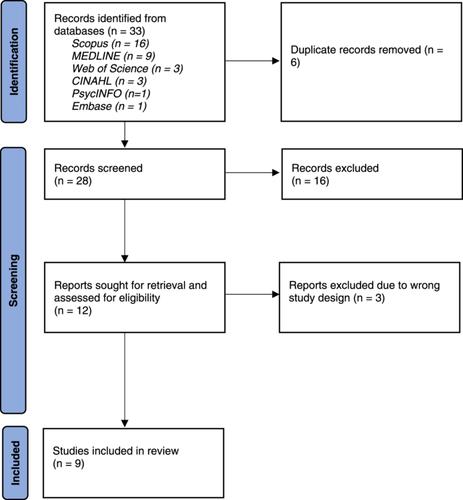Umbrella review of hospital passports: Their use and improvements
Abstract
Background
The hospital or health passport is widely acknowledged as a central element in making reasonable adjustments for patients with intellectual disabilities. Historically, the health passport has been used exclusively for patients with intellectual disabilities; however, it has wider applications for any patient requiring additional support. Commonly, it documents past medical history, communication needs and a person's means of expressing pain. There are, however, significant barriers to their use, meaning patients are unable to access adjustments to improve their experiences in a healthcare system that already marginalises and discriminates against people with intellectual disabilities. This umbrella review aims to establish whether the passport is an effective reasonable adjustment, identify barriers to its use and make recommendations to alleviate these barriers.
Methods
Database and citation searches informed a synthesis of international evidence to address these aims. Following the removal of duplicates and screening, nine review papers originating from the United Kingdom, Australia and Ireland were identified for inclusion. Seven focus on the use of passports for patients with intellectual disabilities, one on the use of passports for autistic people, and one exploring the use of passports for patients with dementia.
Findings
The results demonstrated that the passports are effective in improving care for patients with intellectual disabilities. However, there are barriers to its routine use. We identified three main issues with the current use of the hospital passport. First, there is a need for greater managerial support to implement reasonable adjustments. Second, standardisation of the passports at a national level will make them more accessible to healthcare professionals and will ensure that information is not ‘buried’; the development of a standardised passport must involve consultation of patients, carers and staff to meet the needs of all stakeholders. Finally, education for all healthcare staff to raise awareness of the passport and ensure it is utilised appropriately will ultimately pave the way for positive, long-lasting change.
Conclusions
Passports can be an effective means of communicating reasonable adjustments. Addressing a lack of awareness of its utility, ensuring managerial commitment to implementing reasonable adjustments and making the passport accessible through a standardised format will empower patients to engage with their own care.


 求助内容:
求助内容: 应助结果提醒方式:
应助结果提醒方式:


